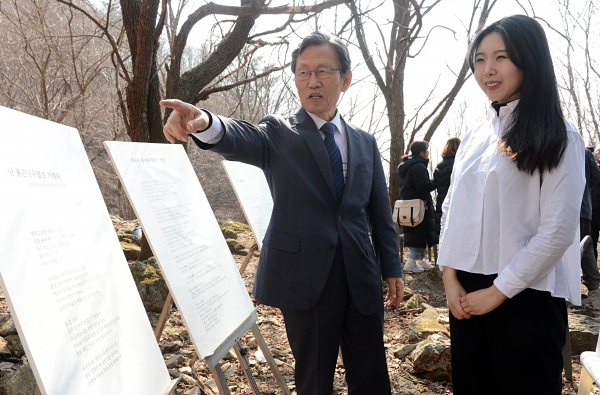I still vividly remember the overwhelming emotion when I completed my doctoral dissertation. It was the culmination of five and a half years of intense effort. I felt as if I could soar through the sky. The journey was far from easy. Two and a half years of coursework, comprehensive exams, language tests, and finally the specialized annotation exam in my field. Only after clearing all these hurdles could I finally embark on writing the dissertation itself.
For three years, I immersed myself in the topic of "The Throne of God." Up until that point, no one had delved as deeply into this subject as I had. Of course, others have tackled this theme since, but their approaches differed somewhat. In a way, my research paved a new path for them.
When I finished the dissertation, I felt proud to have conducted the most in-depth research in this field up to that moment. Yet, I also strived to maintain humility. It was gratifying to see my work cited in numerous academic papers, forming the basis for further studies, and sometimes becoming the subject of critique. This was evidence that my research had made a meaningful contribution to academia.
This experience became a crucial turning point that shaped the direction of my life. I developed an attitude of quietly pursuing the path I believed in. For instance, I became less concerned with conventional measures of success, like taking up administrative positions at the university. Instead, I focused on finding and following my unique direction.
Some might have perceived this attitude as passive. However, it brought me greater freedom and satisfaction. I was able to let go of the desire for things others coveted and pursue what I truly wanted.
This experience profoundly influenced my theological thinking and academic approach. I began to view theological issues from fresh perspectives, unbound by existing frameworks. This laid the foundation for various theological theories I later developed.
Moreover, this experience deeply impacted my pastoral activities. I encouraged congregants to respect their unique faith journeys and develop their relationship with God in their own ways. This helped foster diversity within the church community and promoted individual spiritual growth.
Ultimately, the experience of writing my doctoral dissertation went beyond mere academic achievement, influencing my entire life. It helped me grow into a deeper theologian and pastor, shaping my faith and way of life. Through this experience, I realized that true success lies not in external achievements, but in faithfully following one's calling.
For three years, I immersed myself in the topic of "The Throne of God." Up until that point, no one had delved as deeply into this subject as I had. Of course, others have tackled this theme since, but their approaches differed somewhat. In a way, my research paved a new path for them.
When I finished the dissertation, I felt proud to have conducted the most in-depth research in this field up to that moment. Yet, I also strived to maintain humility. It was gratifying to see my work cited in numerous academic papers, forming the basis for further studies, and sometimes becoming the subject of critique. This was evidence that my research had made a meaningful contribution to academia.
This experience became a crucial turning point that shaped the direction of my life. I developed an attitude of quietly pursuing the path I believed in. For instance, I became less concerned with conventional measures of success, like taking up administrative positions at the university. Instead, I focused on finding and following my unique direction.
Some might have perceived this attitude as passive. However, it brought me greater freedom and satisfaction. I was able to let go of the desire for things others coveted and pursue what I truly wanted.
This experience profoundly influenced my theological thinking and academic approach. I began to view theological issues from fresh perspectives, unbound by existing frameworks. This laid the foundation for various theological theories I later developed.
Moreover, this experience deeply impacted my pastoral activities. I encouraged congregants to respect their unique faith journeys and develop their relationship with God in their own ways. This helped foster diversity within the church community and promoted individual spiritual growth.
Ultimately, the experience of writing my doctoral dissertation went beyond mere academic achievement, influencing my entire life. It helped me grow into a deeper theologian and pastor, shaping my faith and way of life. Through this experience, I realized that true success lies not in external achievements, but in faithfully following one's calling.

